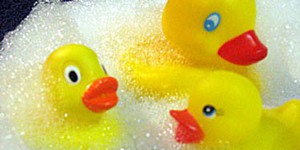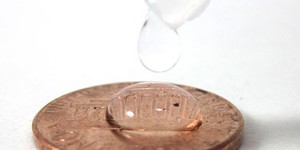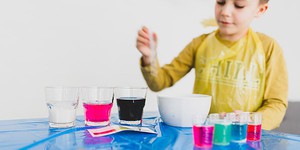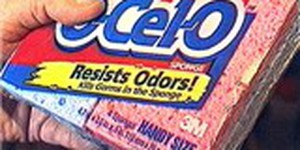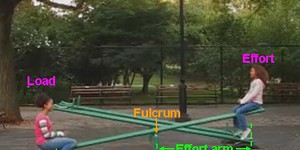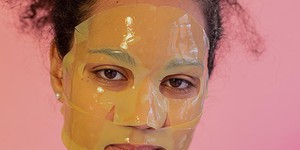Others Like “Spread the Soap, Not the Germs” (top 20 results)
|
Soap comes in many varieties and forms—from bars to bottles to boxes. The uses for soaps are just as expansive—from cleaning our hands, hair, and faces to a variety of household cleaning jobs, such as dishes or laundry. One thing all these different soaps have in common is their chemical origin; they were all made by mixing fat or oil with a strongly basic solution, such as lye. In this chemistry science project, you will carry out the chemical steps needed to transform coconut oil…
Read more
Do you want your hair to be shiny after you wash it? Do you want your clothes to stay bright and soft after laundering, and last a long time? You might think that a special shampoo or detergent can make this happen, but in this chemistry science fair project, you'll discover that how well people and things get clean has a lot more to do with the type of water used for washing than any special shampoo or soap. Did you know that water can be classified as either soft or hard? Soft water lathers…
Read more
Did you know that even though water is a liquid, it isn't always able to get into little cracks and crevices? So how do clothes go from caked with mud to clean? How can dishes go from greasy to glistening? With a few simple household items, you can find out!
Read more
Want to send coded messages to your friends? Can you write a simple letter-substitution encryption program in JavaScript? How easy is it to break the simple code? Can you write a second program that "cracks" the letter-substitution code? Investigate other encryption schemes. What types of encryption are least vulnerable to attack?
Read more
There are many different types, also called genres, of computer and video games, including racing, fighting, sports, adventure, and puzzle games. Do some genres of games appeal more to males and other genres more to females? Survey your classmates and find out in this science fair project!
Read more
Have you ever wondered why some liquids mix together easily, like when you mix different juices to make a fruit punch, while others do not mix at all, like oil and water? What happens to liquids when they are mixed depends on their mixing behavior. Some liquids blend, whereas others form separate layers. If you do it right, you can even stack liquids on top of each other just like solid objects! Want to see for yourself? In this science project, you will investigate the mixing behavior of…
Read more
If you'd rate yourself high on the bacteriophobia scale, just keep on scrolling down to the next project. Bacteria are all around us, and normally our body's defenses keep us blissfully unaware of them. If you don't mind finding out where they're lurking in your house, then you might find this project interesting.
Read more
How much force is required to advance a lag bolt (large wood screw with a hex-shaped head) into a piece of wood? You can measure the force by using a spring scale attached to the handle of ratchet. Pull on the spring scale until the bolt starts to turn, and note the required force from the spring scale. There are many potential experiments you could try. Think about answering the following questions: How does the force change as the bolt advances deeper into the wood? Why? How does the…
Read more
Did you know that you can lift an object that's heavier than you are? Just use a lever! In this science project you'll build a tabletop lever and measure how much effort it takes to lift an object using it.
Read more
Do you care about the look and feel of your skin? Then you probably know that your skin prefers to be well hydrated (moisturized). Dry skin often cracks, gets inflamed easily, and looks dull. If you go to the store, you will find many skin care products that promise to hydrate your skin. Among them are cosmetic face masks (sometimes called facial masks) that you put on your face to provide the skin with water and nutrients. In this science project, you will make your own hydrogel face masks…
Read more
|
Explore Our Science Videos
Explore Reaction Kinetics With the Iodine Clock Reaction
How to Make Elephant Toothpaste
4 Easy Robot Science Projects for Kids




